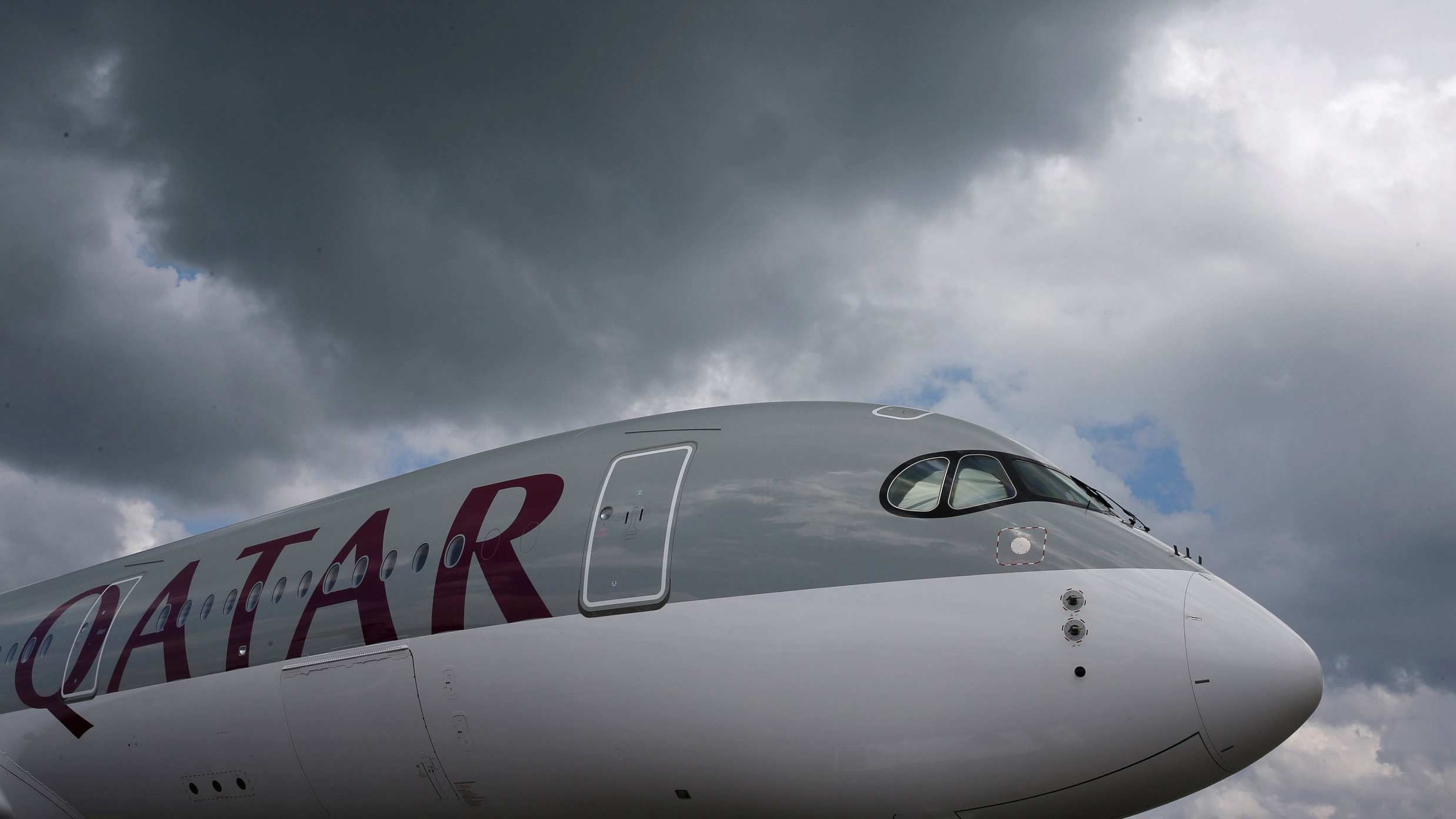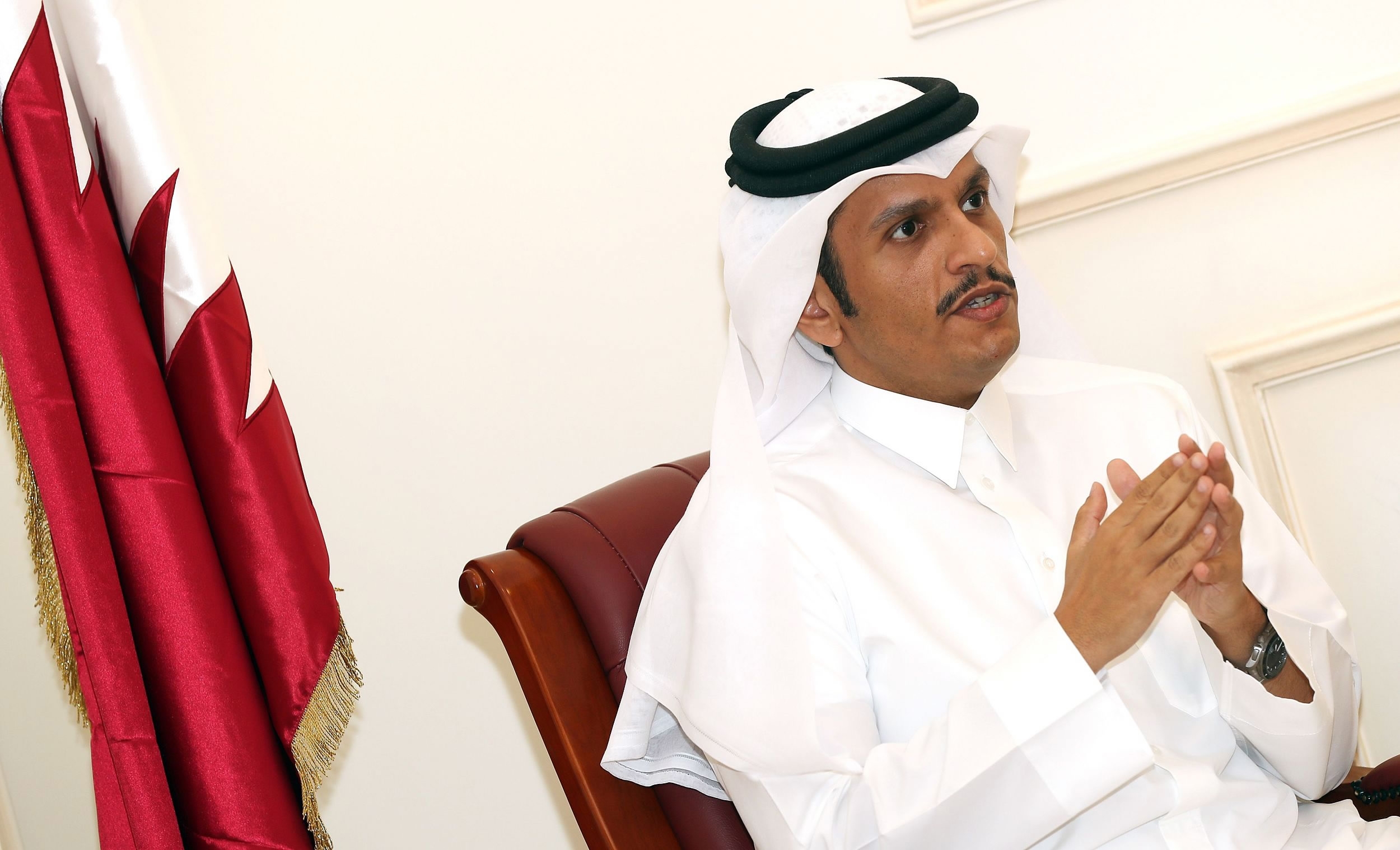
Politics
10:47, 20-Jun-2017
Qatar says it will not negotiate unless neighbors lift 'blockade'

Qatar will not negotiate with its neighbors to resolve the Gulf dispute unless they first lift the trade and travel boycott they imposed two weeks ago, its foreign minister said, but added Doha still believed a solution was possible.
The United Arab Emirates, alongside Saudi Arabia, Egypt and Bahrain, which imposed the measures to isolate Qatar, said the sanctions could last for years unless Doha accepted demands that the Arab powers plan to reveal in coming days.
Qatar has denied accusations by its neighbors that it funds terrorism, foments regional instability or has cosied up to their enemy Iran. The dispute has opened a rift among some of the main US allies in the Middle East, with President Donald Trump backing tough measures against Qatar even as his State Department and Defense Department have sought to remain neutral.
On Monday Qatar held war games with Turkish troops, showing off one of its few remaining strong alliances after two weeks of unprecedented isolation.
Foreign Minister Sheikh Mohammed bin Abdulrahman al-Thani said Doha was ready to "engage and address" the concerns of other Gulf Arab states in what he described as a proper dialogue with pre-determined principles, but reiterated that sanctions must be lifted first.

Qatari Foreign Minister Sheikh Mohammed bin Abdulrahman al-Thani /VCG photo
Qatari Foreign Minister Sheikh Mohammed bin Abdulrahman al-Thani /VCG photo
"Until now we didn't see any progress about lifting the blockade, which is the condition for anything to move forward," Sheikh Mohammed said. The countries that imposed the sanctions have denied that they amount to a blockade.
Sheikh Mohammed said he planned to travel to Washington next week to discuss the economic effect of the "blockade" and its effects on the global fight against terrorism.
"We have a very strong partnership with the U.S. We are partners together in the global coalition of countering terrorism. We have been talking to them since the crisis started," he said.
UAE Minister of State for Foreign Affairs Anwar Gargash said earlier on Monday that those seeking to isolate Qatar had no intention of backing down unless their demands were met.
"Qatar will realize that this is a new state of affairs and isolation can last years," Gargash told reporters in Paris.
"If they want to be isolated because of their perverted view of what their political role is, then let them be isolated. They are still in a phase of denial and anger," he said, adding that a list of grievances for Qatar to address would be completed in the coming days.

Qatar faces airway blockade after its neighboring countries severed ties./VCG photo
Qatar faces airway blockade after its neighboring countries severed ties./VCG photo
Qatar has relished support from Turkey during the dispute. Its state-funded pan-Arab Al Jazeera news channel showed footage of a column of armored personnel carriers flying the Turkish flag inside the Tariq bin Ziyad military base in Doha.
It reported that additional Turkish troops had arrived in Qatar on Sunday for the exercises, although military sources in the region told Reuters the operation actually involved Turkish troops who were already present rather than new arrivals.
The dispute is a major test for the United States, close allies with both sides and which houses the headquarters of its air power in the Middle East at an air base in Qatar.
Washington has sent mixed signals despite Trump's firm personal backing for the sanctions. Trump called Qatar a "funder of terrorism at a very high level," but five days later the Pentagon approved selling Qatar $12 billion of warplanes.
The chairman of the U.S. Joint Chiefs of Staff said on Monday that military operations against Islamic State from Qatar were continuing while acknowledging some friction.
"But what I said last week remains true, in that we have continued to be able to operate, even through that friction," Marine General Joseph Dunford told reporters in Washington.
(Source: Reuters)
6163km
Related Stories:

SITEMAP
Copyright © 2018 CGTN. Beijing ICP prepared NO.16065310-3
Copyright © 2018 CGTN. Beijing ICP prepared NO.16065310-3